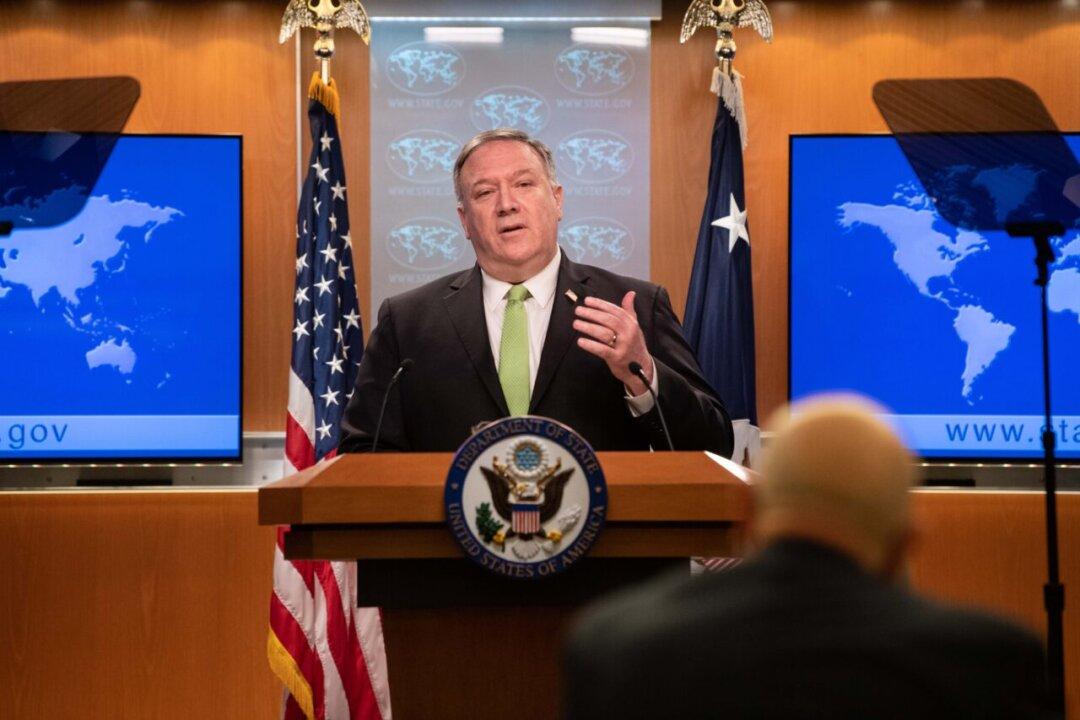U.S. Secretary of State Mike Pompeo on May 27 certified that Hong Kong is no longer autonomous from China, following the Chinese regime’s recent move to tighten its grip over the city.
“Today, I reported to Congress that Hong Kong is no longer autonomous from China, given facts on the ground,” Pompeo said in a tweet. “The United States stands with the people of Hong Kong.”





